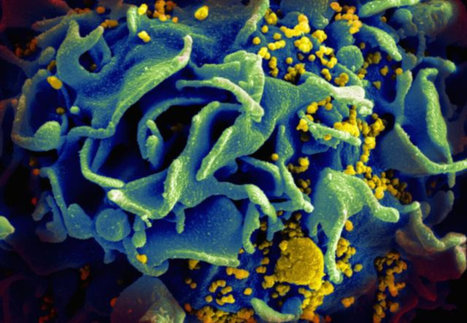Cells from the rare individuals who naturally control HIV infection have been the focus of investigation for nearly 15 years with the aim of elucidating their specific features. scientists from the Institut Pasteur have described the characteristics of CD8 immune cells in these "HIV controller" subjects. The unique antiviral power of these immune cells can be attributed to an optimal metabolic program that confers persistence and the ability to react effectively against infected cells. Working ex vivo, the scientists successfully reprogrammed cells from infected non-controller individuals to give them the same antiviral potency as controllers' cells.
Some people have the ability to control HIV naturally, without treatment. In these very rare individuals (less than 1% of people living with HIV), no multiplication of the virus in the blood can be detected after more than 10 years of infection without treatment. In 2007, scientists from the Institut Pasteur described the extraordinary antiviral activity of these patients' CD8 lymphocytes. Unlike in non-controllers, the CD8 cells of HIV controllers are able to rapidly destroy infected CD4 cells.
The CD8 cells (or "memory cells") of controllers outwardly appear to be identical to those of non-controllers. But the scientists demonstrated that they have a different molecular program. Their research shows that anti-HIV CD8 cells in controllers not only have huge antiviral potential; they are also programmed to survive, whereas in non-controllers, the cell program predisposes them to exhaustion and cell death. "We identified that the antiviral activity of CD8 cells in controllers is associated with an optimal program that gives them plasticity in using the cell's energy resources," explains Asier Saez-Cirion, a scientist in the Institut Pasteur's HIV, Inflammation and Persistence Unit and coordinator of the study. In the laboratory, the scientists then managed to stimulate mitochondrial activity in the anti-HIV cells of non-controllers. They used a substance secreted by the immune system known as interleukin 15 (IL-15) to boost the mitochondrial activity of non-controllers' cells and increase their anti-HIV potential. The reprogrammed CD8 cells of non-controllers are able to destroy infected CD4 cells, much like controllers' cells.
These findings were published today in Nature Metabolism:



 Your new post is loading...
Your new post is loading...







